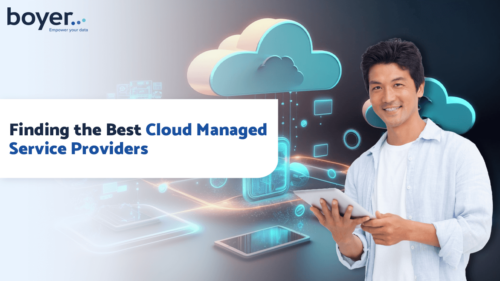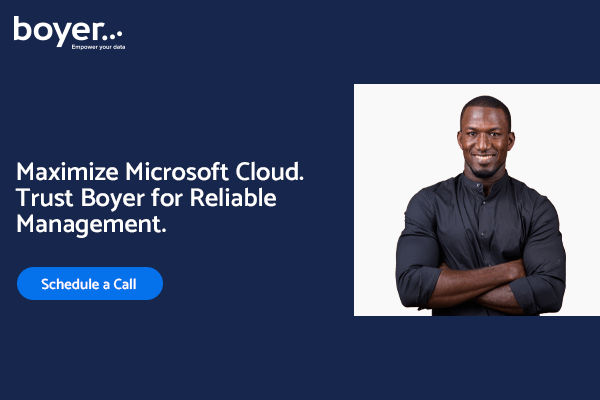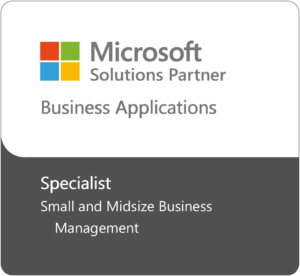Are you tired of struggling to manage your company’s cloud services? It’s time to find the best cloud-managed service providers who can set you free from the stress of maintaining and optimizing your cloud infrastructure.
With their expertise and support, you can focus on what really matters – growing your business. But how do you find the right provider that aligns with your unique needs and desires?
This guide will walk you through the process, from understanding the benefits of cloud-managed services to evaluating your business requirements and considering key factors. We’ll also introduce you to Microsoft’s top cloud environments coupled with Microsoft support.
Get ready to make an informed decision that empowers your business and unlocks its full potential.
Key Takeaways
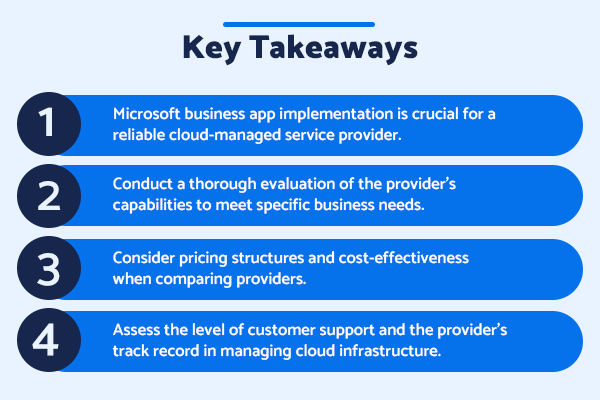
- Microsoft business app implementation is crucial for a reliable cloud-managed service provider.
- Conduct a thorough evaluation of the provider’s capabilities to meet specific business needs.
- Consider pricing structures and cost-effectiveness when comparing providers.
- Assess the level of customer support and the provider’s track record in managing cloud infrastructure.
Understanding Cloud-Managed Services
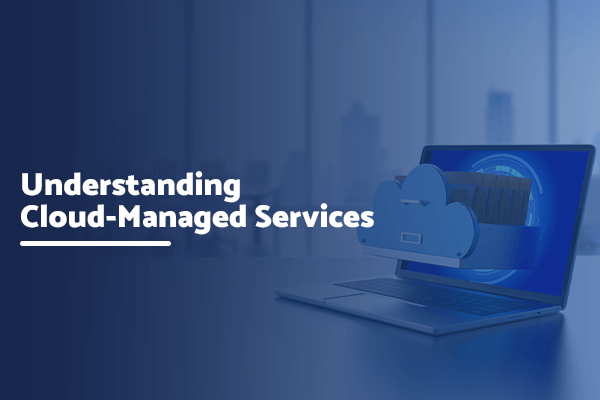
To understand cloud-managed services, you need to know how they can benefit your business.
Cloud adoption has become increasingly popular due to its numerous business benefits. By utilizing Microsoft’s cloud-managed services, you can offload the burden of managing your IT infrastructure and focus on core business activities.
These services offer different service levels to meet your specific needs, allowing you to choose the level of support that aligns with your business goals. Choose a vendor that has expertise in Microsoft business applications. They should have a proven track record in delivering high-quality services and meeting customer expectations.
Additionally, having a well-defined migration strategy is essential to ensure a smooth transition to the Microsoft cloud. Understanding these aspects of cloud-managed services will empower you to make informed decisions that benefit your business.
Evaluating Your Business Needs
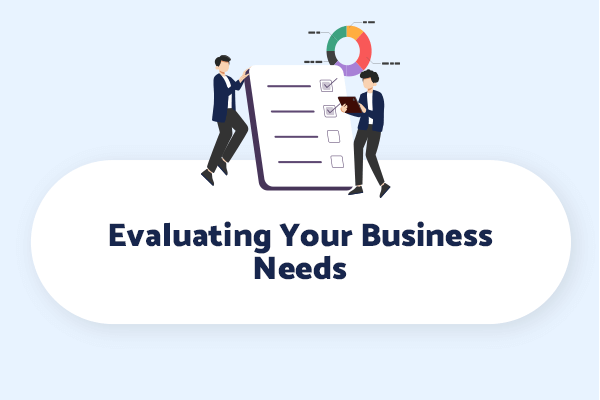
When evaluating your business needs for cloud-managed services, there are three key points to consider.
Firstly, it’s important to identify your IT requirements, such as the specific applications and systems you need to migrate to the cloud.
Secondly, budget considerations should be taken into account to ensure that the chosen provider aligns with your financial capabilities.
Lastly, conducting a thorough security assessment will help determine the benefits offered by Microsoft Cloud and the level of data protection and compliance required for your business.
Identifying IT Requirements
Evaluate your business needs by identifying the specific IT requirements for your organization surrounding Microsoft business applications.
When determining your IT requirements, consider scalability considerations, such as the ability to accommodate future growth and handle increased workloads. Take into account potential data migration challenges, ensuring a smooth transition of your data to the Microsoft cloud.
Additionally, prioritize performance optimization to maximize the efficiency and effectiveness of your IT infrastructure. Regulatory compliance is another crucial aspect to consider, ensuring that your cloud-managed service provider implements features that adhere to industry regulations and security standards.
Budget Considerations
Consider your budget when evaluating your business needs for cloud-managed service providers. Conduct a thorough cost analysis to determine the financial impact of implementing these services. Keep in mind the ROI considerations, as investing in cloud-managed services should ultimately provide a positive return on your investment.
Take into account the service level agreements offered by different providers to ensure that their offerings align with your business requirements. Evaluate the pricing models of various providers to find the one that suits your budget and offers the best value for your money.
During contract negotiations, make sure to negotiate terms that are favorable to your business, including pricing, service levels, and any additional features or support you might require.
Security Needs Assessment
To assess your security needs for Microsoft cloud-managed service providers, start by analyzing the potential risks and vulnerabilities your business might face.
Microsoft business applications provide robust security features. Data protection is a crucial aspect to consider, as it involves safeguarding your sensitive information from unauthorized access or loss. Network security is equally important, as it ensures the integrity and confidentiality of your data during transmission and storage.
Conducting a comprehensive risk assessment will help identify potential threats and vulnerabilities, allowing you to prioritize and address them accordingly. Additionally, compliance requirements must be taken into account to ensure your cloud service provider meets the necessary regulations and standards.
Lastly, incorporating threat detection mechanisms will enable early identification and response to potential security breaches. By evaluating these factors, you’ll be able to find a cloud-managed service provider that maximizes Microsoft features that will meet your security needs.
Key Factors to Consider

When considering the best cloud-managed service provider, there are key factors that you need to consider.
Firstly, you should evaluate their technical capabilities and whether they align with your business needs.
Secondly, examine their knowledge of Microsoft security features to ensure the protection of your data.
Lastly, consider the cost and flexibility of their services to ensure they fit within your budget and can adapt to your changing needs.
Once you choose Microsoft Cloud, partner with Boyer & Associates for a trusted Microsoft partner. Our expertise spans dozens of industries and nonprofits. We are ready to implement Microsoft cloud services for your business.
Provider’s Technical Capabilities
One crucial factor to evaluate when selecting a cloud-managed service provider is their technical capabilities. The provider’s technical expertise is essential in ensuring smooth infrastructure management, efficient service delivery, and optimal performance optimization.
You need a managed service provider that can handle your organization’s specific needs. This includes scalability options to accommodate growth and changes in demand. Look for a provider with a proven track record in managing complex infrastructures and delivering high-quality services. They should know Microsoft business apps well enough to handle security threats and implement effective measures to protect your data.
Additionally, their technical capabilities should include performance optimization techniques. This ensures that your applications and systems run smoothly and efficiently. Consider these factors carefully to find a cloud-managed service provider that can meet and exceed your technical requirements.
Security Measures
Evaluate the knowledge of Microsoft security measures of cloud-managed service providers by considering key factors that ensure the protection of your data and systems.
- When it comes to data encryption, make sure the provider implements strong encryption algorithms to safeguard your sensitive information through Microsoft business apps.
- Microsoft’s access control is another important aspect to consider, as it allows you to control who has access to your data and systems.
- Look for providers that implement Microsoft’s comprehensive threat detection capabilities, as this will help identify and mitigate potential security risks.
- Microsoft’s vulnerability scanning is crucial to ensure that any vulnerabilities in your systems are identified and patched promptly.
Cost and Flexibility
Consider the cost and flexibility of cloud-managed service providers to ensure that they meet your specific needs and budget. Conduct a thorough cost analysis to determine if the provider’s pricing aligns with your financial goals.
Additionally, evaluate the scalability options offered by the provider to ensure that you can easily expand or contract your resources as needed.
Look for service level agreements that guarantee uptime and performance to avoid any disruptions to your operations.
Beware of vendor lock-in, as it might limit your ability to switch providers if necessary.
Finally, assess the customization options available, as they allow you to tailor the services to your unique requirements.
Top Cloud Service Providers
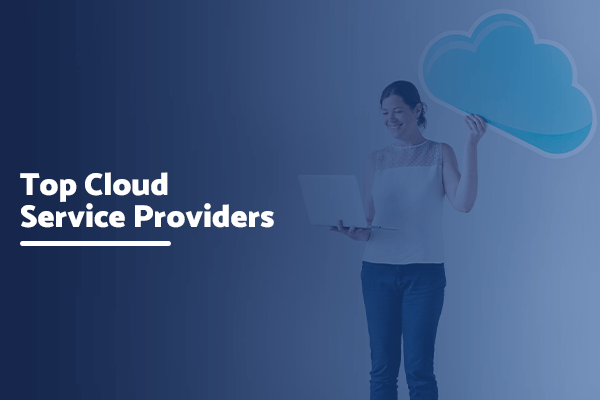
Now, let’s talk about the top cloud service providers.
When it comes to identifying the best providers, it’s important to compare them based on their capabilities.
You’ll want to get an overview of what each provider can offer in terms of cloud management services.
While finding a top cloud service provider may be a priority, choosing Microsoft Cloud with Microsoft Managed Services can be a great option as well.
Identifying Top Providers
To begin your search for the best cloud-managed service providers, start by looking at the top providers in the industry. These top providers have established themselves as leaders in the cloud services market and offer a range of features and options to meet your specific needs.
When evaluating these providers, consider their pricing options, service level agreements, scalability options, data migration process, and service customization options.
Pricing options are important as they allow you to choose a plan that fits your budget. Service level agreements ensure that you receive the level of service promised by the provider.
Scalability options are crucial for businesses that anticipate growth and need to easily expand their cloud resources. The data migration process should be seamless and efficient, allowing you to transfer your data to the cloud without any hiccups. Lastly, service customization options are essential for tailoring the cloud services to your unique requirements.
Provider Comparison
Start by comparing the top cloud service providers in the industry. When evaluating provider options, consider the range of service features they offer. Look for providers that meet your specific needs, whether it’s scalability, data storage, or security.
Performance metrics are crucial as well, so check if a provider has a track record of delivering high availability and low latency. Customer reviews can provide valuable insights into the quality of service and support. Take the time to read what other customers have experienced with the providers you’re considering.
Lastly, pay close attention to the contract terms. Make sure they align with your expectations and offer the flexibility and freedom you desire. By comparing these factors, you can find the best cloud service provider for your business.
Provider Capabilities Overview
Compare the capabilities of the top cloud service providers to determine the best fit for your needs. When evaluating provider expertise, consider their knowledge and skills in managing cloud infrastructure. Look for a wide range of service offerings, such as data storage, computing power, and networking solutions, to ensure they can meet your specific requirements.
Industry experience is crucial as it demonstrates their understanding of the challenges and demands of your sector. Scalability options are essential for future growth, so assess their ability to accommodate your expanding needs. Customer testimonials can provide valuable insights into the provider’s reliability, responsiveness, and overall customer satisfaction.
Making the Final Decision
When making the final decision on a cloud-managed service provider, there are several key points you should consider.
First, assess the provider’s capabilities to ensure they can meet your specific needs and requirements.
Next, compare pricing structures to find the most cost-effective option for your business.
Lastly, evaluate the level of customer support offered by each provider to ensure you’ll have the assistance you need throughout your partnership.
As mentioned before, Microsoft Cloud may have so many capabilities that a cloud service provider is not necessary. Boyer can help you implement Microsoft Cloud and point out all of the features to get your business transferred to the cloud successfully.
Assessing Provider Capabilities
Evaluate the capabilities of different cloud-managed service providers to make a final decision. When assessing provider expertise, consider their track record in managing cloud infrastructure and their ability to handle complex technical issues.
A thorough performance evaluation is crucial to ensure the provider can deliver the desired level of service. Look for service level agreements (SLAs) that outline the provider’s responsibilities and guarantees regarding uptime, response time, and data security.
Additionally, conduct a scalability assessment to determine if the provider can accommodate your organization’s future growth.
Lastly, perform a risk assessment to identify potential vulnerabilities and ensure that the provider has robust security measures in place.
Comparing Pricing Structures
To make the final decision, consider the pricing structures of different cloud-managed service providers. Conduct a pricing comparison and perform a cost analysis to determine the value for money.
Look for price competitiveness among the providers and evaluate their pricing models. When comparing pricing structures, keep in mind that the cheapest option might not always be the best choice. Consider the features and services offered by each provider and weigh them against the price.
Look for transparency in pricing and make sure there are no hidden costs. Additionally, consider the scalability of the pricing structures to ensure they align with your future needs.
Boyer & Associates is clear about pricing plans in our managed services offerings.
Evaluating Customer Support
Consider the level of customer support provided by different cloud-managed service providers as you make your final decision. Evaluating response time, customer satisfaction, service level agreements, technical expertise, and communication skills are all important factors to consider.
When evaluating response time, look for providers that offer prompt and efficient support to address any issues or concerns you might have.
Customer satisfaction is crucial in ensuring that the provider meets your needs and delivers a positive experience. Service level agreements should outline the level of support you can expect and the provider’s commitment to resolving any issues.
Technical expertise is essential for troubleshooting and resolving complex problems. Lastly, effective communication skills will ensure clear and efficient communication with the support team.
Taking the time to evaluate these aspects of customer support will help you make an informed decision and choose the best cloud-managed service provider for your needs.
Frequently Asked Questions

What are the key benefits of using cloud-managed services?
You’ll experience cost savings, scalability, flexibility, enhanced collaboration, and improved disaster recovery through Microsoft with cloud-managed services. They provide freedom for you to focus on what you do best while leaving the technicalities to experts.
How do cloud-managed services differ from traditional IT outsourcing?
Cloud-managed services differ from traditional IT outsourcing in several ways. With the Microsoft cloud, you have more control and flexibility, while outsourcing is more hands-off. Managed services offer better service delivery, cost comparisons, and scalability advantages.
What are the potential risks or challenges associated with implementing cloud-managed services?
When implementing cloud-managed services, you need to be aware of the potential risks or challenges. When Microsoft business apps are not implemented fully, these include data privacy concerns, service reliability issues, vendor lock-in, cost management difficulties, and scalability challenges.
Boyer Offers Microsoft Cloud-Managed Services You Can Trust
So, there you have it! After evaluating your business needs and considering key factors, you have explored the top cloud service providers.
Now, it’s time to make the final decision and choose the best cloud-managed service provider for your business. With their expertise and support, you can optimize your cloud infrastructure and enjoy the benefits of efficient and reliable cloud management.
Boyer & Associates has the knowledge and experience to maximize the benefits of Microsoft Cloud. Get a return on your investment by choosing Boyer to help you implement Microsoft software solutions and reap the benefits of being in the Microsoft cloud.


